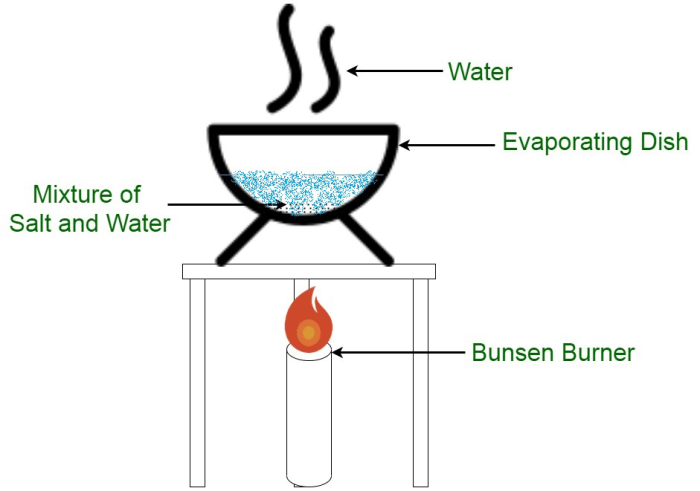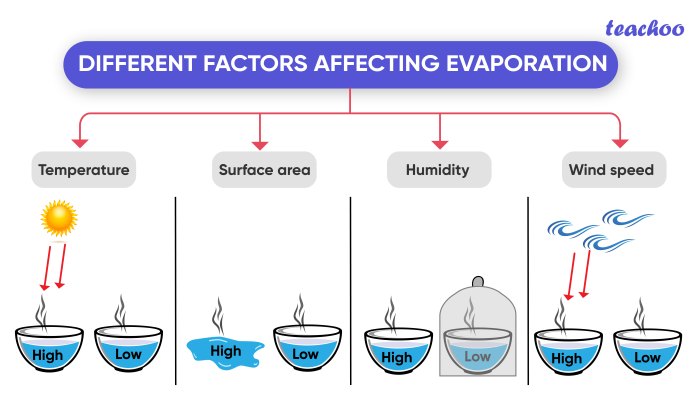Evaporation Process Could Power Machines: Imagine a world where the simple act of water turning into vapor could generate enough energy to power our homes and industries. This is no longer just a futuristic fantasy; it’s a reality that scientists and engineers are actively exploring. The evaporation process, a fundamental natural phenomenon, holds the potential to revolutionize our energy landscape, offering a clean and sustainable alternative to traditional fossil fuels.
The concept hinges on the fact that evaporation requires energy, and this energy can be harnessed. Think of a sunny day at the beach: the sun’s heat evaporates water from the ocean, creating a cycle of energy transfer. By capturing this energy, we could create a new, renewable source of power. While still in its early stages, the technology behind evaporation power is rapidly advancing, with promising applications in various industries.
Technological Advancements in Evaporation Power
Evaporation power harnesses the natural process of water turning into vapor to generate energy. This method, fueled by solar or geothermal heat, holds immense potential for a sustainable future.
Existing Evaporation Power Technologies
Existing technologies leverage the power of evaporation to generate electricity. These include:
- Solar ponds: These are large, shallow pools of water with a layer of salt water at the bottom. The salt water absorbs solar radiation, creating a temperature gradient that drives a heat engine to generate electricity.
- Geothermal systems: Geothermal energy utilizes the heat from the Earth’s core to power evaporation. Water is pumped into underground reservoirs, heated, and then brought back to the surface to drive turbines and generate electricity.
Emerging Technologies for Enhanced Efficiency
Research and development are constantly pushing the boundaries of evaporation power, aiming to improve its efficiency and scalability. Some promising emerging technologies include:
- Nanotechnology: Utilizing nanomaterials with enhanced properties for improved heat absorption and vaporization. This could significantly increase the efficiency of evaporation processes.
- Hybrid Systems: Integrating evaporation power with other renewable energy sources, like solar photovoltaic, to create a more robust and reliable energy system.
- Advanced Materials: Exploring new materials with higher heat resistance and enhanced water absorption to boost evaporation rates and energy output.
Challenges and Limitations of Evaporation Power
Despite its potential, evaporation power faces certain challenges that need to be addressed for its widespread adoption:
- Intermittency: Solar and geothermal resources are intermittent, meaning they are not always available. This can lead to unreliable power generation.
- Land Requirements: Large areas of land are required for solar ponds and geothermal systems, which can be a constraint in densely populated areas.
- Efficiency: Current evaporation power technologies are not as efficient as other renewable energy sources, such as solar photovoltaic. This means more land and resources are needed to generate the same amount of power.
Applications of Evaporation Power in Various Industries
Evaporation power, harnessing the energy from water evaporation, holds immense potential to revolutionize various industries, offering a sustainable and cost-effective alternative to traditional energy sources. Its ability to generate clean energy while reducing environmental impact makes it a compelling solution for a wide range of applications.
Agriculture
Evaporation power can significantly benefit the agricultural sector by providing a sustainable and efficient source of energy for various operations. Here’s how it can be implemented:
- Irrigation: Evaporation power can be used to pump water from sources like rivers or groundwater to irrigate crops, reducing reliance on fossil fuels and minimizing water waste.
- Greenhouse Heating: Utilizing evaporation power to heat greenhouses can create a more controlled and energy-efficient environment for crop growth, enhancing yields and reducing energy consumption.
- Livestock Farming: Evaporation power can be used to power ventilation systems in livestock barns, improving animal welfare and reducing the risk of diseases by maintaining optimal temperature and humidity levels.
Desalination, Evaporation process could power machines
Evaporation power can play a crucial role in desalination, the process of removing salt from seawater to produce fresh water, addressing the growing global water scarcity.
- Solar-Powered Desalination: Evaporation power can be integrated with solar energy to power desalination plants, offering a sustainable and cost-effective solution for producing clean drinking water in coastal areas.
- Reduced Energy Consumption: By harnessing the natural energy from water evaporation, desalination plants can significantly reduce their reliance on fossil fuels, lowering operating costs and minimizing carbon emissions.
Manufacturing
Evaporation power can be utilized in various manufacturing processes, offering a sustainable and cost-effective alternative to traditional energy sources.
- Industrial Heating: Evaporation power can be used to generate heat for industrial processes, such as drying, baking, and sterilization, reducing reliance on fossil fuels and minimizing environmental impact.
- Cooling Systems: Evaporation power can be integrated with cooling systems in factories and warehouses, providing a sustainable and energy-efficient method for maintaining optimal temperatures and reducing energy consumption.
- Wastewater Treatment: Evaporation power can be used to power wastewater treatment plants, reducing energy consumption and minimizing the environmental impact of industrial wastewater discharge.
Future Prospects for Evaporation Power: Evaporation Process Could Power Machines
The future of evaporation power technology holds immense potential for transforming the energy landscape. Current trends and ongoing research point towards a promising future for this innovative approach to energy generation.
The Role of Evaporation Power in Sustainable Energy Goals
Evaporation power offers a compelling solution for achieving sustainable energy goals and mitigating the effects of climate change. This technology harnesses the abundant and renewable energy source of solar radiation, offering a clean and environmentally friendly alternative to fossil fuels.
- Reduced Carbon Emissions: Evaporation power plants do not emit greenhouse gases during operation, contributing to a cleaner environment and combating climate change.
- Sustainable Energy Source: The sun’s energy is virtually inexhaustible, ensuring a reliable and sustainable source of power.
- Decentralized Power Generation: Evaporation power plants can be deployed in various locations, including remote areas, enabling decentralized power generation and reducing reliance on centralized grids.
Research and Infrastructure Investments for Widespread Implementation
To accelerate the widespread adoption of evaporation power, significant investments in research and infrastructure are crucial.
- Improving Efficiency and Cost-Effectiveness: Research efforts are focused on enhancing the efficiency of evaporation power systems and reducing their cost, making them more competitive with traditional energy sources.
- Developing Scalable Technologies: Scaling up evaporation power technology to meet the demands of large-scale energy production requires further development and testing.
- Building Necessary Infrastructure: Establishing the necessary infrastructure, including power grids and storage systems, is essential to integrate evaporation power into existing energy systems.
Harnessing the power of evaporation presents a compelling solution to our energy needs. While challenges remain, the potential benefits are undeniable. From reducing our reliance on fossil fuels to powering sustainable industries, the evaporation process could usher in a new era of clean and renewable energy. As research and development continue, we may one day see evaporation power become a significant player in the global energy market, shaping a future where energy is abundant, sustainable, and accessible to all.
Imagine a world where the simple act of water evaporating could power our machines. That’s the future some scientists are envisioning, and it’s not as far-fetched as it sounds. While we’re busy pondering the implications of such a revolutionary energy source, the Pirate Bay is busy staying ahead of the curve, hopping from domain to domain like a digital pirate ship.
Maybe one day, we’ll be using the same principles of evaporation to power our internet connections too, who knows?
 Standi Techno News
Standi Techno News

